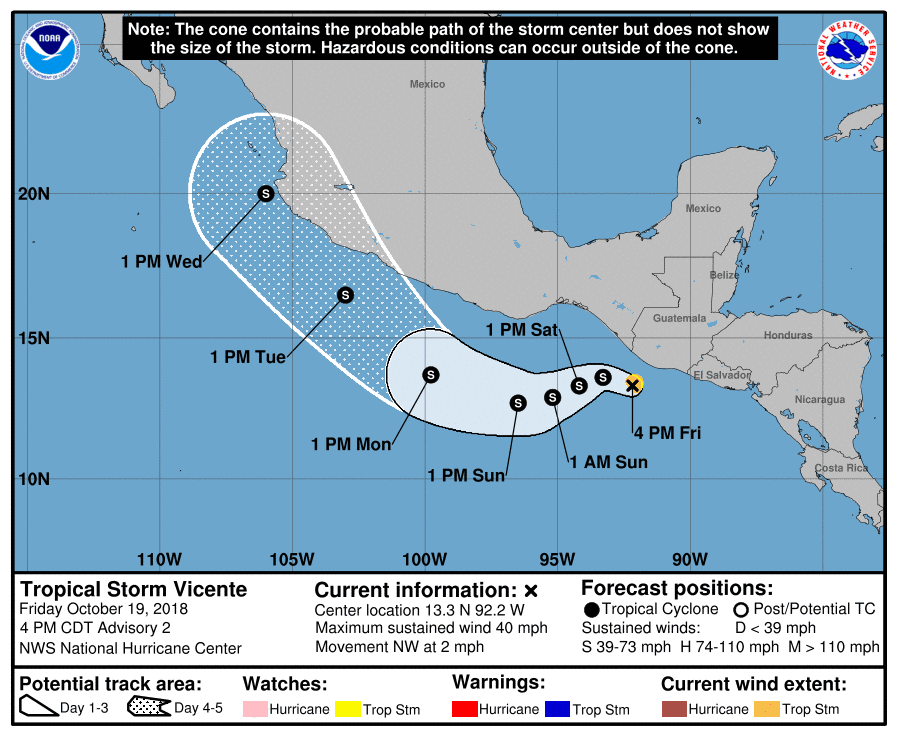As Tropical Storm Tara began to fall apart Tuesday night near the central Pacific coast of Mexico, meteorologists at the National Hurricane Center (NHC) were watching another area of concern not too far away.

Not named at the time, Tropical Depression 23-E began as a cluster of thunderstorms becoming better organized over northern portions of Central America earlier this week. The system then moved into Pacific Ocean and, as of 5 p.m. EDT Friday, became Tropical Storm Vicente as its sustained winds reached 40 mph. It’s the 20th named storm of the eastern Pacific season and is currently centered about 105 Miles southwest of Puerto San Jose on the west coast of Guatemala. The storm’s rain could could threaten lives and the economy of the region.
Vicente has the potential to dump a lot of rain on cash crops in parts of El Salvador and Guatemala this weekend, including one of the most important ones – coffee. The International Coffee Organization (ICO) ranks them both in the top 20 coffee-producing nations in the world (Guatemala is 9, El Salvador is 19). According to this report, Guatemala exported $330 million dollars worth of coffee to the U.S. in 2017, led only by Colombia, Brazil, and Vietnam. Coffee production accounts for around 35 percent of combined GDP for the two countries, and the industry employs hundreds of thousands of people.
Other important crops in the two countries include sugar, bananas, white corn, sorghum, rice, edible beans, cotton, and hemp. Agricultural land (percentage of total land area) in El Salvador was reported at 77.3 percent in 2014, according to the World Bank collection of development indicators, and 35.4 percent in Guatemala.
While coffee plants need rain, too much at once can ruin crops. Depending on soil condition and terrain, heavy rainfall can cause erosion, depletion of nutrients, or waterlogged roots which can become diseased and rot. Even with enough drainage and available food, prolonged torrential rains can also lead to mold and fungus – coffee leaf rust in particular. The rains from Vicente will likely douse two of the biggest coffee-producing regions – the Apaneca-Ilamatepec Mountain Range in southwest El Salvador, and the Antigua region of Guatemala.
The latest forecast calls for five to 10 inches of rain with local amounts of up to 15 inches across portions of El Salvador and southern Guatemala this weekend. Besides the possibility of agricultural losses, heavy rainfall could produce life-threatening flash flooding and landslides within mountainous terrain. Next week, Vicente could remain at tropical storm strength as it heads toward some of the same areas of Mexico that got drenched by Tropical Storm Tara earlier this week. Three to six inches could fall with local amounts of up to 10 inches near the Pacific coast of southeastern Mexico.







